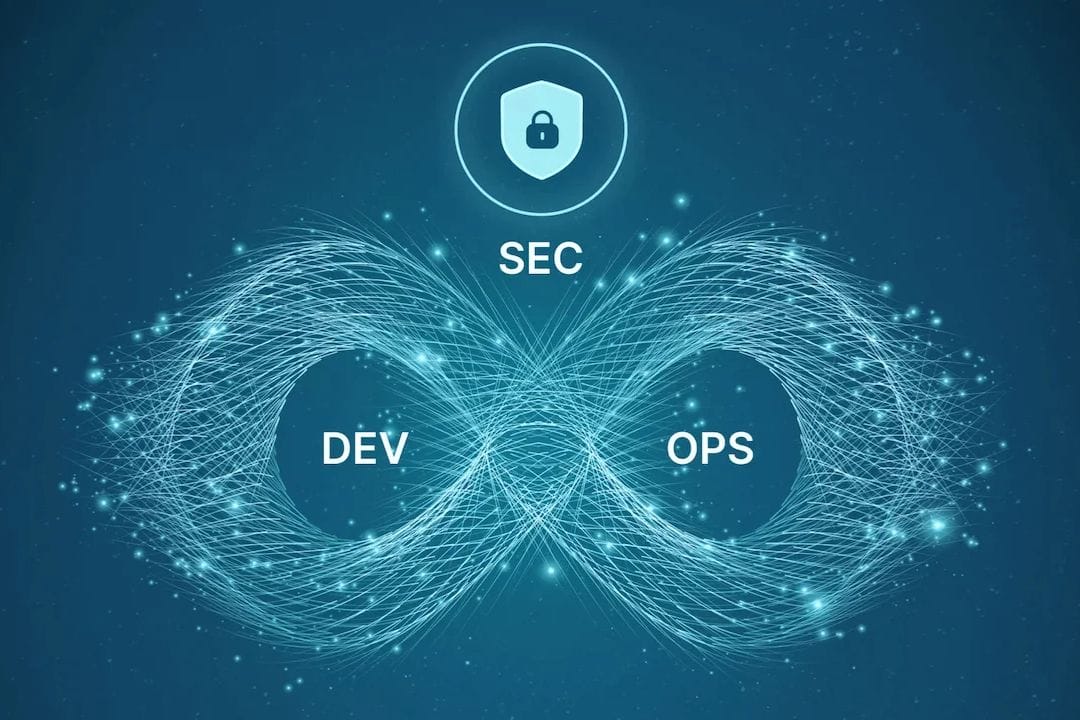
DevOps engineers and developers have revolutionized the IT world with total focus in delivering quick and secure IT service delivery. By creating a collaborative setup between operations and testing stages, the DevOps team is instrumental in creating vast infrastructural changes in the IT culture.
In simple terms, DevOps is a unique practice providing a convenient platform for software development teams to communicate and work in collaboration with each other. This helps them to build and implement software solutions swiftly and efficiently. It is basically a combination of the two words development and operations.
Similarly, DevOps Security signifies creating solid security boundary walls directly into the software systems or software development process. This means that developers are taking into account potential security loopholes and creating secure applications right from the start while writing the software code, rather than simply including security checks at the end. It is a robust plan in an effort to make security a vital part of the process involving software development cycle.
The Critical Role of DevOps Security
Until recent times, most security provisions were initiated in the later stages of the development process, by a special team. However, due to rising cybersecurity breaches and attacks, along with shorter iterations (new versions) of applications, it is now standard practice to include DevOps Security in the present-day product development procedures. Integration of security is now a grave responsibility that is shared by the entire tech team to ensure that DevOps security practices are 100% effective.
Let us explore the 5 primary benefits of DevOps Security:
- Quick Delivery – Safety practices are duly integrated into the automated steps used for delivering new software versions. They are also called CI/CD or continuous integration and continuous delivery. This helps the developer team to identify bugs and fix them prior to deployment, thus allowing developers to concentrate on shipping features. With DevOps security process, the developer can ignore retrofit security controls and save considerable time and cost involved in the software delivery.
- Better Security Features – Since security is employed right from the design phase, automating the security inclusion at every stage becomes easy and a robust chain of security of the product development cycle is formed, starting from design, development, and testing up till it reaches the end, i.e. software delivery stage.
- Cost Reduction – DevOps services help facilitate scanning and patching of numerous vulnerabilities and risky exposures. It also allows identification of several security-related issues and bugs before deployment of the software. This mitigates unnecessary risks and subsequently reduces the operational costs.
- Enhances Effectiveness – By not indulging in outdated security procedures or practices, introduction of DevOps security automatically enhances the effectiveness of the overall software structure. This is a result of strong collaboration and shared sense of responsibility by the developer team.
- Team Collaboration – DevOps practices can generate synergy between the developer team and the normal software security teams at the very start of the development stage. This facilitates effective collaboration and friendly cross team practices boosting team spirit.
- Hosting on the Cloud – Another notable factor that showcases DevOps as a crucial practice is the quick shift that businesses are doing, jumping from on-premises software deployment activities to hosting software activities on the cloud, leveraging the comprehensive plus points that includes less operational expenditure and reduced management issues.
DevOps Security Challenges & Solutions
Uniting Separate Departments
DevOps security can remove isolated cases of silos and helps to bring about a shared team efficiency to the entire software development process. Initially, it was difficult to introduce and implement. For example, for a long time the engineering department and the IT sector have been treated as separate operating bodies and the both parties work independently. However, the sudden collaborative effort between the two sides can be challenging and cause disruptions.
Previously, random incidents like security breaches can expose the failure of developers working independently and not assigned with implementing proper security measures. With the introduction of DevOps security system put in place, developers have leaned on effective tools like Docker, Jenkins, and Kubernetes to enable quick and secure development.
DevOps security environment provides tools, pathways, and policies to initiate rapid yet secure progress. With DevOps, it is possible to have the toughest security measures adopted through the software development cycle.
Organizational Resistance
When software developers consider implementing security while writing code, they have met with frustrated efforts and delays. IT admins are also not comfortable working alongside developers, as applications are ready to launch only with some minor modifications that are required to be completed. Under these challenging circumstances, the engineers and IT groups need ample time to get a grasp over how the other party works.
Security Vulnerabilities
If software is developed or built in the cloud, naturally security risks can increase and spread all over. The IT team may be familiar with traditional security tools like firewalls, which do not offer much protection in the cloud network. As applications and tools used to secure DevOps depend on cloud-based resources, these tools may themselves become vulnerable links, thus creating a challenging situation.
FAQs
Why do hybrid environments complicate DevOps processes?
Many businesses still go by the traditional ways and legacy infrastructure. When such out-dated things are combined with the latest cloud-based services, it forms a hybrid environment. Such hybrid environments are complex and do not meet the superior process standards needed for DevOps. Hybrid cloud is quite popularly used by organizations that wish to be competitive and yet reluctant to leave traditional ways.
The cloud being critical for their success, companies often transfer workloads to multiple clouds and choose them for varied applications. This presents a tough challenge for scaling DevOps. It can be a stressful task to create complex hybrid cloud DevOps pipelines and also trying to manage, create security walls, and stick to regulatory compliances around multiple cloud ecosystems. Developers feel that it is difficult to continue with consistent processes across diverse environments that include multiple clouds and land-based datacenters.
What happens when an organization does not succeed in acquiring the right talent?
Businesses or companies find it challenging to acquire the right DevOps talent. According to news resources, in these current times, DevOps engineers are highly sought-after while demanding top-tier annual packages. When a company fails to recruit the right talent or skilled professionals, it may have to select new recruits and train them.
This can be cost-effective but can take up a considerable amount of time and impact new software release schedule dates and delay day-to-day operations. These technical challenges and lack of talent pool are two major barriers to implement DevOps security and improvise software performances across organizations.
What do you mean by DevOps secrets management?
The DevOps security developers and team may use specific automated software provisions, configurations, and additional application deployment methods. These require secrets management, which means practicing secure storage and management of sensitive private data or information such as API keys, passwords, and related credentials within the pipeline.
This ensures that crucial data is always protected all through the development process, test runs, and deployment stages involved in the software applications. Secrets management is done using certain power-packed tools and exclusive processes to control and limit access to sensitive data and avoid risk of data exposure.


